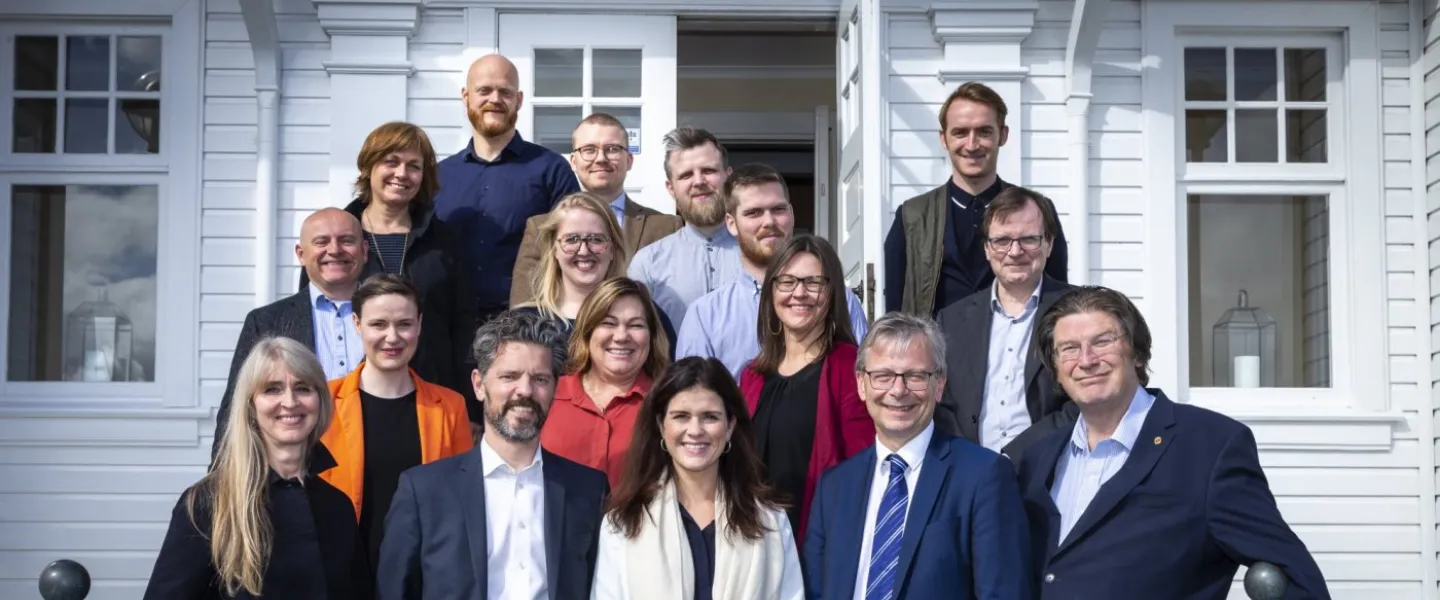
The first Icelandic business accelerator for social innovation was launched recently and is now open for applications. The University of Iceland is party to the project.
Dagur B. Eggertsson, Mayor of Reykjavík; Þórdís Kolbrún Reykfjörð Gylfadóttir, Minister of Industries and Innovation; Jón Atli Benediktsson, Rector of the University of Iceland; Pia Hansson, Director of the Höfði Reykjavík Peace Centre; Fríða Björk Ingvarsdóttir, Rector of the Iceland Academy of the Arts; Þorsteinn Ingi Sigfússon, Director of the Innovation Center Iceland, and Fanney Karlsdóttir; Chair of FESTA - Icelandic Centre for Corporate Social Responsibility, signed a joint collaborative contract on the development and preparation of the accelerator Snjallræði (e. smart idea). Snjallræði will be formally launched at the annual peace conference organised by the Höfði Reykjavík Peace Centre 10 October 2018.
Höfði Reykjavík Peace Centre at the University of Iceland, the Innovation Centre Iceland, FESTA - Icelandic Centre for Corporate Social Responsibility, the University of Iceland, the City of Reykjavík, Ministry for Industries and Innovation and the Iceland Academy of the Arts are behind the Startup Social, while the execution of the project is in the hands of Höfði Reykjavík Peace Centre and the Innovation Centre Iceland. The endeavour is meant to strengthen diversity in Icelandic innovation and create a forum for social entrepreneurial activities.
It is possible to participate in the accelerator by applying on snjallraedi.is Seven projects will consequently be chosen for participation which includes facilities at Hús skapandi greina at Hlemmur. During a seven-week period in October and November, the chosen participants will have access to a team of supervisors and support to develop their ideas further. The projects receive prize money for their participation and continuing support from the supervisors after the accelerator is completed.
Who can take part in the Social Accelerator?
The application process is open to all, individuals, associations and companies. The main emphasis will be placed on projects that will have a positive impact on society. Climate change, demagogy, prejudice and political dissolution are examples of issues that impact societies and influence their future development. Rapid technological changes entail great social changes that will put their marks on job development and opportunities for societal participation in future Iceland. It is thus vital that there is a forum in Iceland for individuals, associations and companies to find creative solutions to these new challenges in a changed society. Interdisciplinary innovation must be strengthened, and the knowledge found in social sciences and humanities, empirical sciences, information technology and biotechnology must be brought together, paving the way for innovation in the field of public service, welfare services and environmental issues.
What is Startup Social?
The traditional role of a business accelerator is to speed up the process companies need to go through after an idea is born until the business is booming. Participation in a business accelerator includes free access to joint work facilities and specialised assistance in the development of projects from industry or academia. Participants have, furthermore, access to both training and education during this period. The accelerator closes with special investors or introduction day where participants present their ideas to investors or the appropriate institutions or companies. The participants thus receive assistance in their preparations, good advice, and connections to parties in both the private and public sector as well as other entrepreneurs.
Innovation and entrepreneurial work are often linked to new technology in the field of natural sciences with great emphasis on financial gain. However, innovation is even more important in the fields of health, education and welfare where rapid technological changes benefit the whole of society. Accelerator in social startup encourages individuals, associations and companies to participate in innovation that brings about positive changes to society and opens the eyes of the general public to the fact that innovation incurs benefits for everyone. The project outcome can thus be extremely diverse and may include establishing charity organisations, encouraging cultural activities, environmental solutions, developments in the educational system and new technology for the public health care system.
The final product of the social startup can vary and bring about innovation in diverse fields, however, the main focus will be that participants concentrate primarily on societal gain and not necessarily on financial profit.